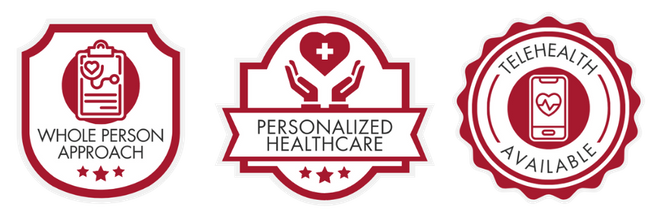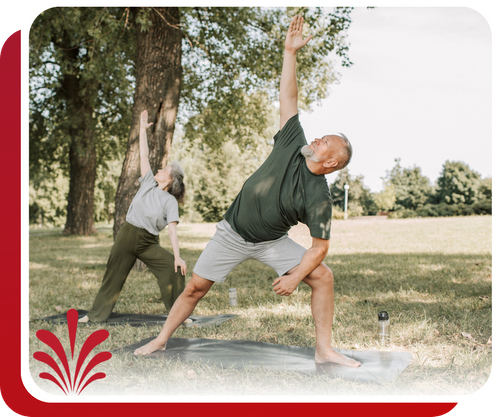Testosterone Therapy and Men's Health

Reclaim Your Vitality with Expert Care
At Lifespring Health Center, we specialize in Testosterone Replacement Therapy (TRT) and Bioidentical Hormone Replacement Therapy (BHRT) to help men restore balance, energy, and confidence. If you’re struggling with fatigue, low libido, weight gain, or brain fog, these may be signs of low testosterone or hormonal imbalance. Our expert team provides natural, individualized care to help you feel like yourself again.

Understanding the Symptoms of Low Testosterone
Low testosterone, also known as andropause, can lead to a range of physical and mental symptoms. We understand that low testosterone levels can significantly impact men’s quality of life. Symptoms such as fatigue, low libido, and mood changes can affect your daily activities and relationships. Other symptoms can include:
- Low Energy
- Fatigue
- Low Sex Drive
- Erectile Dysfunction
- Weight Gain
- Reduced Muscle Mass
- ”Brain Fog”
- Depression
- Low Motivation
- Irritability
- Insomnia
- Loss of Strength
Our team identifies these symptoms and creates a treatment plan that supports lasting, natural relief through TRT and BHRT. Our testosterone therapy aims to help men restore their vitality and well-being.

Personalized Treatment
Our journey begins with a thorough health evaluation, including lab tests to assess your testosterone levels and identify any underlying issues. Based on your unique needs, we craft a personalized treatment plan. This tailored approach not only enhances testosterone levels but also aligns with your overall lifestyle for better results.

Holistic Hormone Therapy
Our approach is different from traditional healthcare. We use bioidentical hormones structurally identical to those your body naturally produces. The treatment plan we create for you is specifically designed for your hormonal profile, lifestyle, and goals. In addition to hormone therapy, we may support your journey with proactive solutions like nutrition coaching and lifestyle modifications for optimal results.
Ongoing Support for Lasting Results
Throughout your therapy, we provide continuous monitoring and support to ensure optimal outcomes. Regular follow-ups allow us to adjust your treatment as necessary, so you can experience increased energy, improved mood, and renewed confidence.

Conditions We Treat with TRT & BHRT
Lifespring Health Center treats more than just low testosterone. We also address thyroid hormone imbalances, cortisol dysregulation, and other hormonal issues that affect men’s health. By treating the whole body, not just the symptoms, we help patients improve energy, focus, metabolism, sexual function, and emotional well-being.

Take the First Step Toward Feeling Your Best
You don’t have to accept low energy, poor sleep, or mood swings as a normal part of aging. Let Lifespring Health Center guide you to renewed vitality with expert TRT and BHRT care. Contact us today to schedule your consultation.

See What Our patients Say
The customer service I have received here is amazing. The nicest thing I’ve found is the fact that she listens to you and makes recommendations off of those questions/concerns. This has been a seamless transition from another hormone treatment facility and I am so glad I made the switch. If you’ve been wondering if this is the right place, the answer is a simple “YES”.She helped me transform my body, mind, overall health. I’ve never felt better.
- Curtis -
Men, if you think your testosterone is low, call Cora! She’s super smart and just an amazing person. She understood what I was going through and knew exactly how to help me. Lifespring is the only place you need to go.
- Christian -
Dr. Reynolds is Super professional, very intelligent on natural remedies not the kind of Dr. that pushes some pills or prescription but really tries to get your blood levels to were they are suppose to be the right way! She is very responsive to any questions that I ever have! I would highly recommend any male that is feeling low motivation or weight gain due to low testosterone levels to give her a chance to fix your blood work!
- Chris-
Take the First Step Towards Wellness
Don’t let low testosterone hold you back. Contact Lifespring Health Center today to schedule your free 15 minute phone consultation and start your journey to revitalized health!
